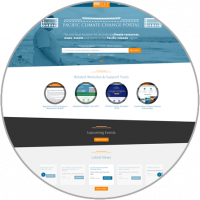Latest News

Les-nouvelles-du-proe-en-francais, Waste Management and Pollution Control
10 juillet 2025, Apia, Samoa – Des représentants gouvernementaux et des partenaires du développement se sont réunis cette semaine à Apia, Samoa, pour faire le point sur les réalisations et les leçons tirées de la mise en œuvre du projet Sustainable Waste Actions in the Pacific (SWAP), et pour
Latest SPREP publications
Pacific Climate Change Centre (PCCC) : Nafa Newsletter, Issue 03
Pacific Roadmap for Strengthened Climate Services 2024-2033
Case Study Organic Management
COSPPac Pacific Weekly Access-S Update - Wednesday 21 May 2025
Our Projects
Upcoming events
Venue: Victoria Falls, Zimbabwe
Venue: Orientation for Private and Public Sector Online and In-Person, PCCC, SPREP, Samoa






























